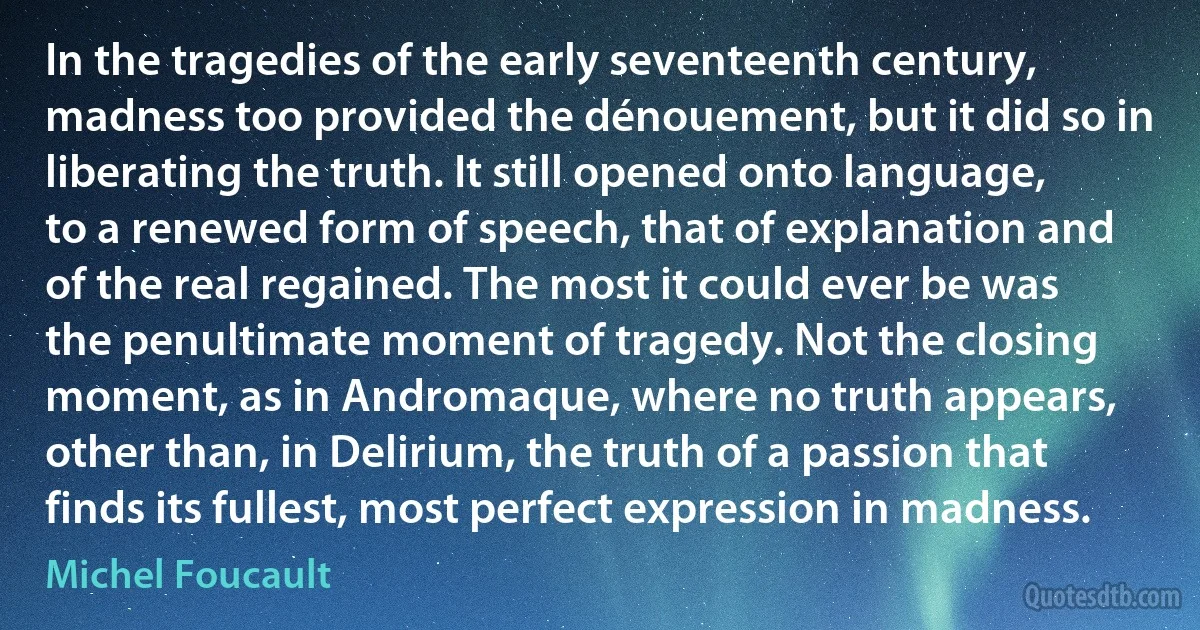
In the tragedies of the early seventeenth century, madness too provided the dénouement, but it did so in liberating the truth. It still opened onto language, to a renewed form of speech, that of explanation and of the real regained. The most it could ever be was the penultimate moment of tragedy. Not the closing moment, as in Andromaque, where no truth appears, other than, in Delirium, the truth of a passion that finds its fullest, most perfect expression in madness.
Michel FoucaultRelated topics
century delirium denouement early form language liberating madness moment passion penultimate perfect real seventeenth speech truthRelated quotes
Every living thing was shunning him. Poor little Peter Pan, he sat down and cried, and even then he did not know that, for a bird, he was sitting on his wrong part. It is a blessing that he did not know, for otherwise he would have lost faith in his power to fly, and the moment you doubt whether you can fly, you cease forever to be able to do it. The reason birds can fly and we can't is simply that they have perfect faith, for to have faith is to have wings.

J. M. Barrie
The use of canon raised numerous questions concerning the paths of projectiles. ...One might determine... what type of curve a projectile follows and.... prove some geometrical facts about this curve, but geometry could never answer such questions as how high the projectile would go or how far from the starting point it would land. The seventeenth century sought the quantitative or numerical information needed for practical applications, and such information is provided by algebra.

Morris Kline
For – to say a few words on technique – whereas the curved line was used predominantly for reasons of beauty, (Phidias, Michelangelo, Raphael, Rubens) it has been used more and more economically for reasons of truth (Millet, Claude Monet, Paul Cézanne) until it will end as the straight line for reasons of Love. This will enable the art of the future to create an international form; a form understandable to all and vital enough to the expression of a general feeling of love in a monumental way. Such is the future.

Theo van Doesburg
The constitution of madness as mental illness, at the end of the eighteenth century, bears witness to a rupture in a dialogue, gives the separation as already enacted, and expels from the memory all those imperfect words, of no fixed syntax, spoken falteringly, in which the exchange between madness and reason was carried out. The language of psychiatry, which is a monologue by reason about madness, could only have come into existence in such a silence.

Michel Foucault
No dogma taught by the present civilization seems to form so insuperable an obstacle in a way of a right understanding of the relations which culture sustains as to wilderness, as that which declares that the world was made especially for the uses of men. Every animal, plant, and crystal controverts it in the plainest terms. Yet it is taught from century to century as something ever new and precious, and in the resulting darkness the enormous conceit is allowed to go unchallenged.

John Muir
